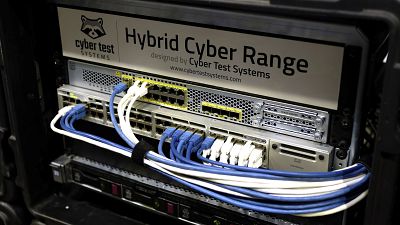By Marc Jones
LONDON (Reuters) -Investment bank Morgan Stanley has put the chance of Scottish independence from the UK at 15%, while rival Citi put it as high as 35% on Wednesday, as analysts readied for crucial elections next week where the issue will be centrestage.
Scotland holds an election for its devolved parliament on May 6, and the SNP, which has run the Scottish government within the United Kingdom since 2007, is hoping the vote will deliver support for a new referendum. Scottish voters narrowly rejected independence in a referendum in 2014. The Greens, who support independence, are expected to pick up seats in parliament as well.
"With the pro-independence parties likely to secure a majority in the May 6 Holyrood election, we see a 15% chance of independence," Morgan Stanley said in a research note, adding there was a higher 30% chance that a new referendum would be held.
Any plans for a new vote on the future of the union could usher in another volatile period for Britain's financial markets, which are still dealing with the fallout from the more-than-four-year squabble over the UK's exit from the EU.
Opinion polls in Scotland point to a persistent, though narrowing, majority in favour of leaving the 314-year-old United Kingdom. Scottish voters opposed Britain's exit from the EU, and some blame London for bringing them out of the bloc against their will.
Given the time it would take to stage a new referendum and negotiate separation, Morgan Stanley said the earliest plausible date for independence would be Jan. 1, 2025.
With the SNP needing to take just four more seats than they already hold to win a majority of 65 in the 129-seat Scottish parliament, other financial institutions are also sizing up the issue.
Citi on Wednesday predicted a 35% chance of Scottish independence in the next 10 years, while Credit Suisse said on Tuesday an SNP majority would materially increase the chances of a second referendum over the next 12-24 months.
"In this scenario, UK assets would need to start pricing in a political risk premium for a potential breakup of the UK," the Swiss investment bank told its clients.
The pound and London's FTSE share index both suffered a late bout of nerves in 2014 as the first independence referendum approached. Sterling sank over 6% versus the dollar and the FTSE slumped 12% running up to the vote and rebounded 3% and 11.5% respectively after Scots voted to stay put.
It also saw major jostling from financial firms at the time. Asset manager Standard Life suggested it would move its headquarters to England if Scotland voted for independence.
Standard Life Aberdeen, formed after Standard Life merged with Aberdeen Asset Management in 2017, said on Wednesday it was "too early to have any clarity" on what it might do if Scots did vote for independence.
Betting markets such as Betfair currently have only 10/1 odds of a second referendum being called this year although they also point to a 50-50 chance that Scots would choose independence this time.
The UK government says the last referendum was "once in a generation" - and a generation hasn't passed, but independence supporters say Brexit has changed the situation completely. Scotland's economy is about 7-8% of UK GDP. In comparison, London alone is around a quarter of UK GDP.
Morgan Stanley said that with an SNP majority victory next week already looking possible, the pound, UK equity and bond markets were all likely to see "limited" reaction to such a win.
However, "they may respond later on if a referendum is on the horizon," it added.
(Additional reporting by Thyagaraju Adinarayan, Carolyn Cohn and Elizabeth HowcroftEditing by Peter Graff and Bernadette Baum)



